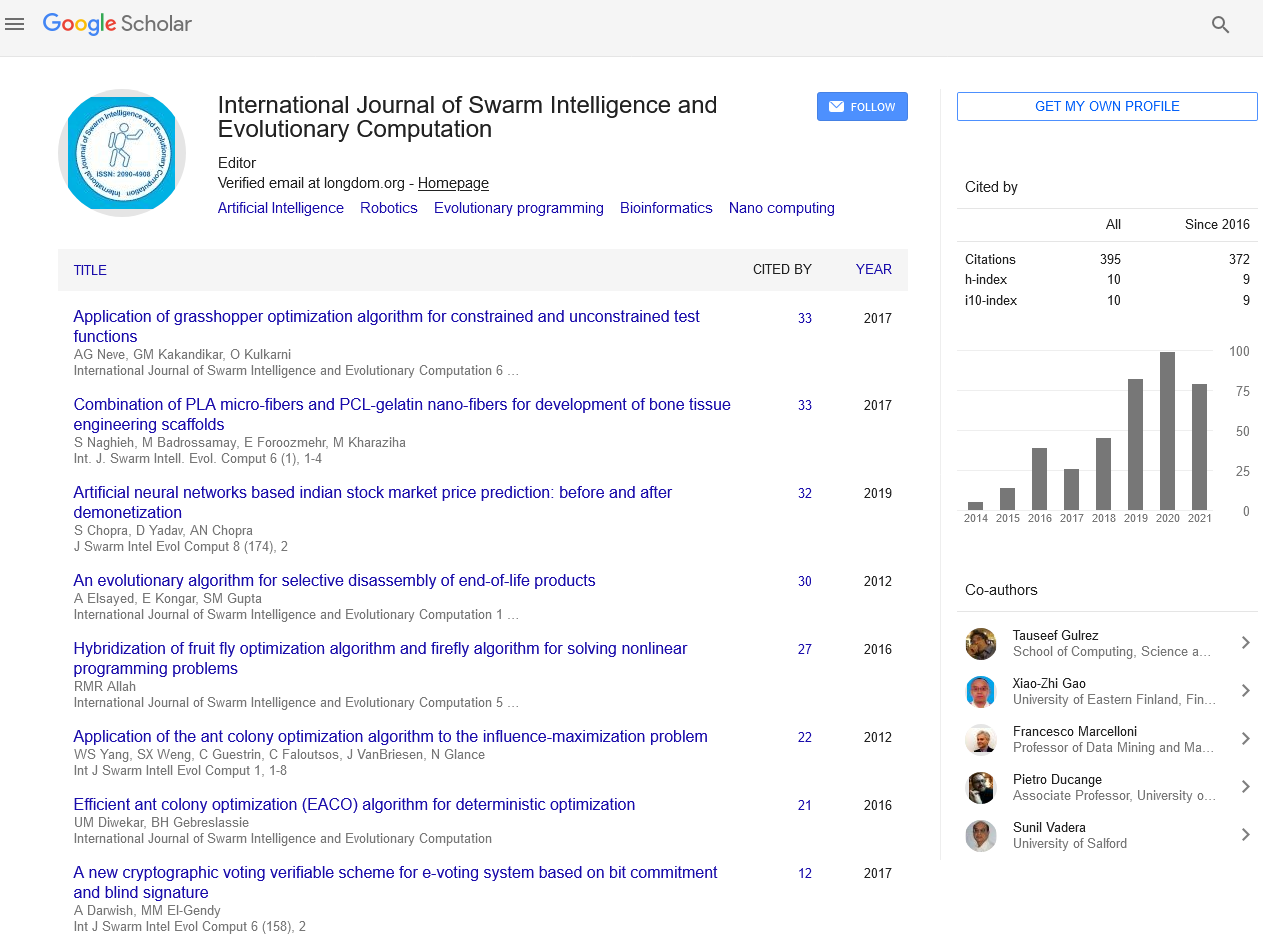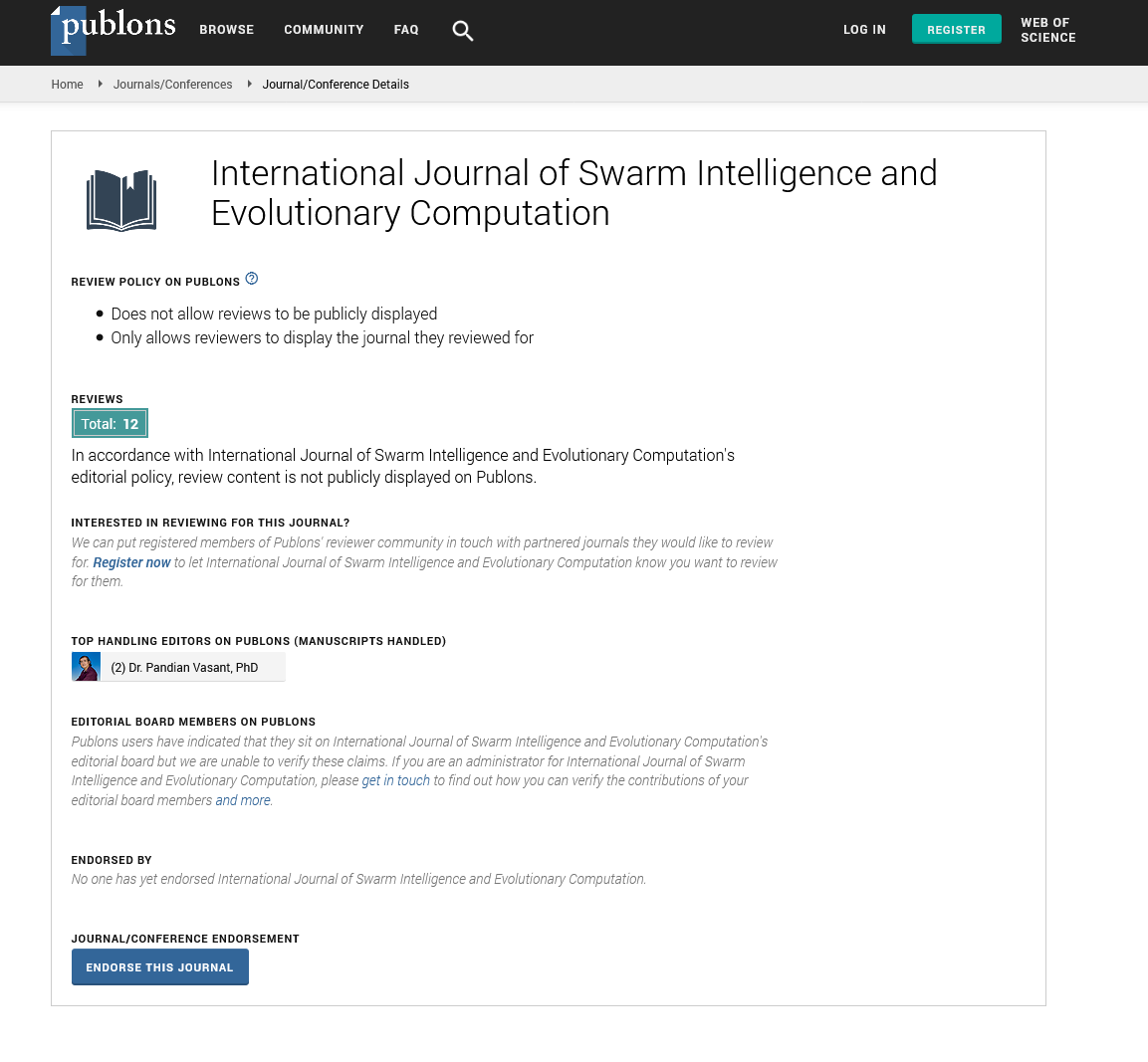Indexed In
- Genamics JournalSeek
- RefSeek
- Hamdard University
- EBSCO A-Z
- OCLC- WorldCat
- Publons
- Euro Pub
- Google Scholar
Useful Links
Share This Page
Journal Flyer

Open Access Journals
- Agri and Aquaculture
- Biochemistry
- Bioinformatics & Systems Biology
- Business & Management
- Chemistry
- Clinical Sciences
- Engineering
- Food & Nutrition
- General Science
- Genetics & Molecular Biology
- Immunology & Microbiology
- Medical Sciences
- Neuroscience & Psychology
- Nursing & Health Care
- Pharmaceutical Sciences
Perspective - (2025) Volume 14, Issue 1
The Ethical Dilemma of Artificial Intelligence: A Double-Edged Sword
Zheifi Hassan*Received: 12-Feb-2025, Manuscript No. SIEC-25-28513; Editor assigned: 14-Feb-2025, Pre QC No. SIEC-25-28513 (PQ); Reviewed: 28-Feb-2025, QC No. SIEC-25-28513 (Q); Revised: 07-Mar-2025, Manuscript No. SIEC-25-28513 (R); Published: 14-Mar-2025, DOI: 10.35248/2090-4908.24.14.410
Description
Artificial Intelligence (AI) is revolutionizing every sector, from healthcare to finance, and even entertainment. Its ability to process vast amounts of data, automate tasks, and enhance decision-making has made it an invaluable tool in modern society. However, despite its numerous benefits, AI presents ethical challenges that cannot be ignored. This article explores the ethical dilemmas surrounding AI and the need for responsible development.
One of the most significant concerns about AI is its impact on employment. Automation and AI-driven processes have replaced many human jobs, particularly in manufacturing and customer service. While this technology increases efficiency and reduces operational costs, it also leads to job displacement. The challenge lies in balancing technological advancement with employment opportunities. Governments and businesses must work together to create reskilling programs that equip workers with skills relevant to an AI-driven economy.
Another pressing issue is the potential for bias in AI systems. AI algorithms are trained using large datasets, which can sometimes reflect human biases. If not carefully monitored, AI can reinforce discriminatory practices in hiring, lending, and law enforcement. For instance, facial recognition technology has been criticized for racial and gender biases. To mitigate these risks, developers must ensure that AI models are trained on diverse and representative data sets, and governments should enforce regulations that promote fairness and accountability.
Privacy concerns also dominate discussions about AI. With the rise of AI-powered surveillance and data analytics, individuals' personal information is more vulnerable than ever. Companies and governments collect vast amounts of data to improve AI systems, but misuse or breaches of this data can lead to significant privacy violations. Implementing strict data protection laws and giving individuals more control over their personal information are essential steps in safeguarding privacy.
Furthermore, there is the question of AI’s moral and ethical responsibilities. As AI becomes more autonomous, particularly in fields like autonomous vehicles and military applications, the question of accountability arises. If an AI-powered car causes an accident, who should be held responsible—the manufacturer, the programmer, or the AI itself? Establishing clear ethical frameworks and accountability measures is crucial to ensuring that AI is used responsibly and ethically.
Despite these challenges, AI holds immense potential to improve lives. It is transforming healthcare by enabling early disease detection and personalized treatments. In education, AI-powered tools provide personalized learning experiences for students. In environmental conservation, AI helps track climate change patterns and optimize energy use. Therefore, instead of fearing AI, we must focus on developing it responsibly and ethically.
Conclusion
AI is a double-edged sword that brings both opportunities and challenges. While it has the potential to drive innovation and economic growth, ethical dilemmas related to employment, bias, privacy, and accountability must be addressed. By implementing robust regulations, fostering transparency, and encouraging interdisciplinary collaboration, we can ensure that AI serves humanity rather than harms it. As we continue to explore the capabilities of AI, a balanced approach is necessary to harness its power while minimizing its risks.
Citation: Hassan Z (2025). The Rise of Robotic Intelligence: A Revolution in Automation. Int J Swarm Evol Comput. 14:410.
Copyright: © 2025 Hassan Z. This is an open-access article distributed under the terms of the Creative Commons Attribution License, which permits unrestricted use, distribution and reproduction in any medium, provided the original author and source are credited.


